Commander
Reporting
Within Dispatch, Incident Commanders (ICs) are also participants and will receive all of the participant messaging. When resolved as the Incident Commander, you are assigned that Dispatch role, and your identity is propagated.
All Slack commands are listed below, or you may view groups of commands relating to People, Communications, Tasks, and Incident Resources & Metadata.
All Slack commands
/dispatch-add-timeline-event/dispatch-assign-role/dispatch-engage-oncall/dispatch-list-my-tasks/dispatch-list-participants/dispatch-list-tasks/dispatch-list-workflows/dispatch-list-incidents/dispatch-notifications-group/dispatch-report-executive/dispatch-report-incident/dispatch-report-tactical/dispatch-update-incident/dispatch-update-participant/dispatch-run-workflow/dispatch-create-task/dispatch-create-case
People
These commands help manage the people helping resolve the incident.
/dispatch-assign-role
Anyone helping run an incident may play various roles. For example, you may have a scribe or an executive liaison, or you may hand off the incident to a new Incident Commander. At any of these times, use /dispatch-assign-role to quickly assign a role to any individual.
It's essential to use this command when handing off responsibility for incident leadership. Doing so will help avoid any confusion about the identity of the current Incident Commander.

/dispatch-engage-oncall
You'll need the help of various teams to resolve an incident. To quickly engage an on-call member of another team, use /dispatch-engage-oncall to determine their identity and optionally page them.
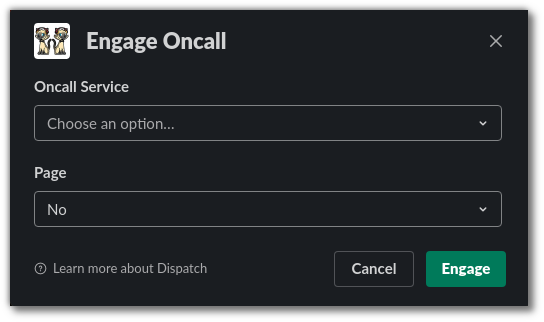
/dispatch-list-participants
Use this command to determine which teams and individuals are engaged in the incident. The output looks like this:
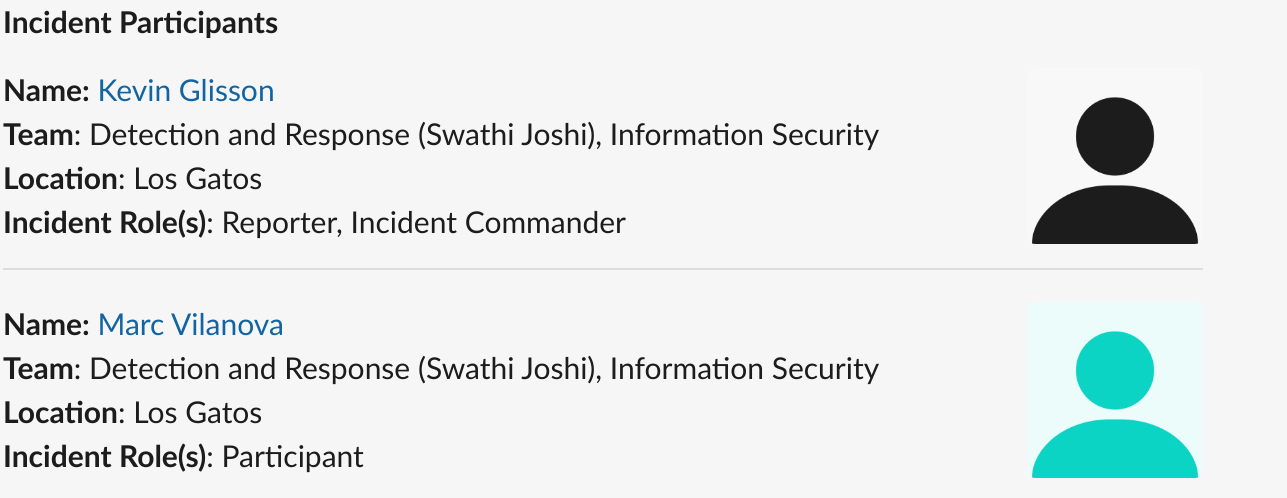
/dispatch-update-participant
Participants in an incident, or the Incident Commander, may want to know a participant's area of expertise or their expected contribution to resolving an incident. Use /dispatch-update-participant to update the reason a participant was added. The dialog appears like this:
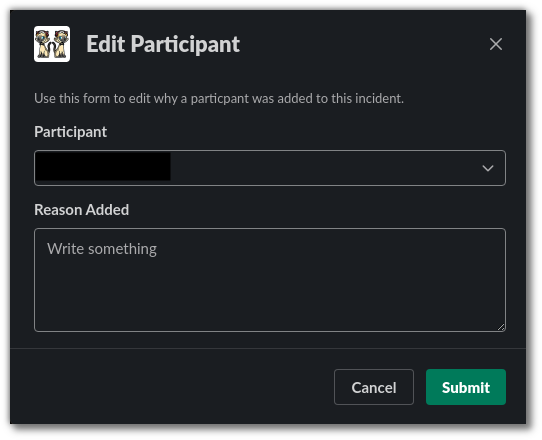
Communications
These commands help manage incident communications.
/dispatch-notifications-group
An incident notifications group consists of individuals or distribution lists. Manage this group by using /dispatch-notifications-group.
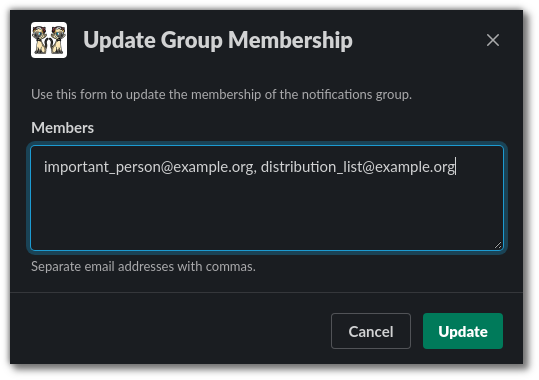
/dispatch-report-executive
Some stakeholders are invested in an incident's progress but aren't expected to be directly involved with the incident. For example, your Chief Financial Officer may want to know of an ongoing security incident regarding financial data but will likely not be directing participants or their actions. To keep external stakeholders such as these informed, use /dispatch-report-executive to build and distribute a high-level report.
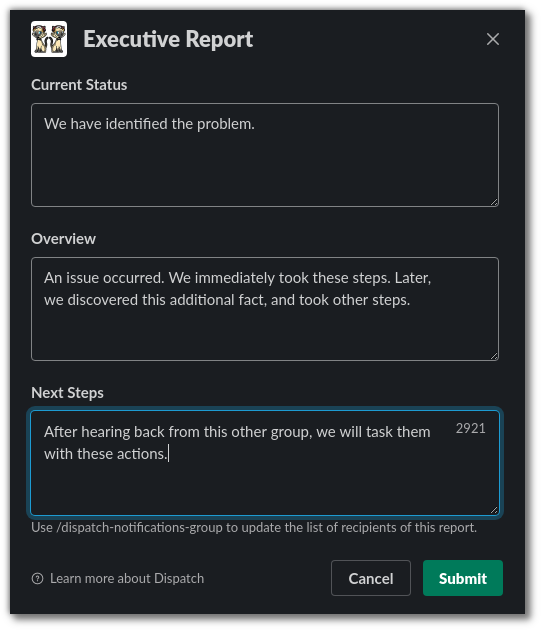
/dispatch-report-incident
Use /dispatch-report-incident to report a new incident.
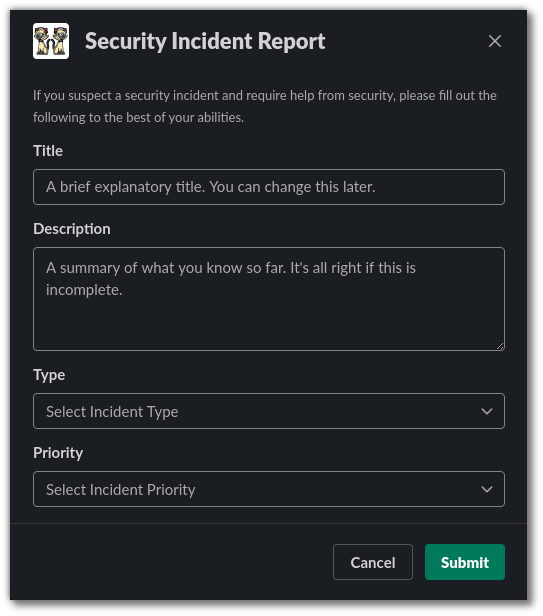
/dispatch-report-tactical
Regular tactical reports, such as using the Conditions, Actions, and Needs (CAN) format, are critical to keeping your participants well-informed. Use /dispatch-report-tactical to easily create these.
The report form will appear like this:
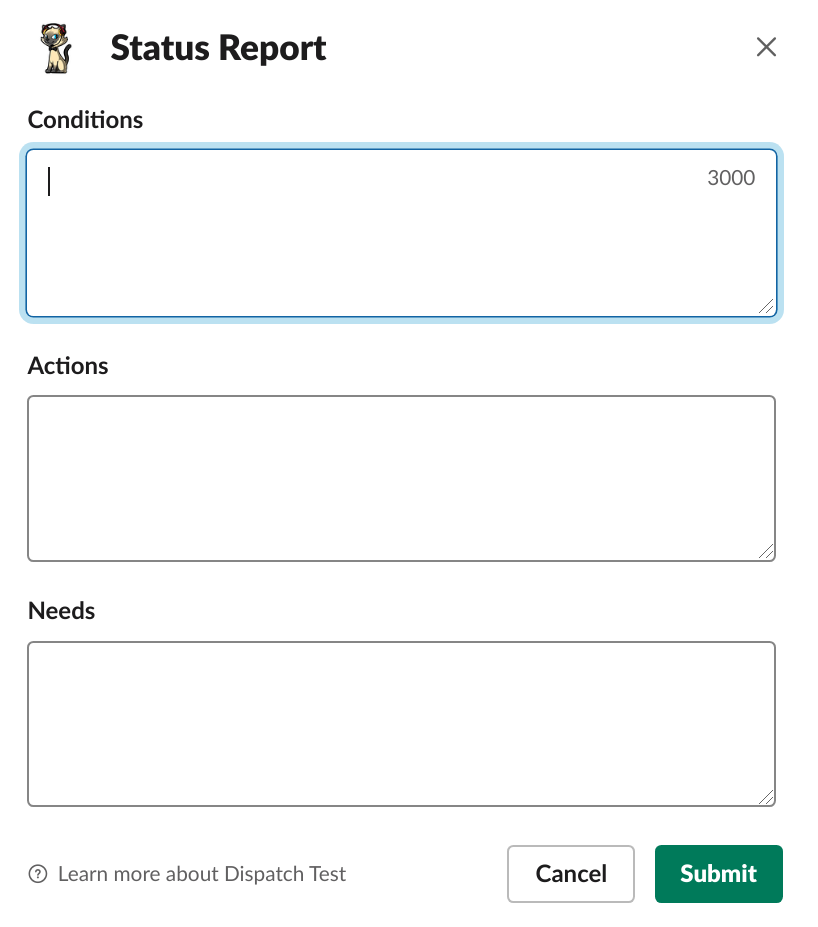
The output in the Slack channel will appear like this:
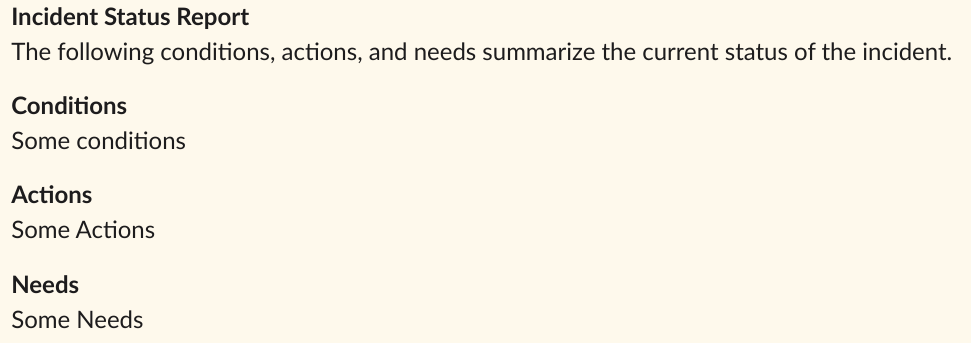
Tasks
Dispatch provides a lightweight bridge between Google Docs comments assigned as tasks and your Slack incident channel.
It looks like this, in the Incident Document:

The following commands help manage these tasks associated with an incident.
/dispatch-list-my-tasks
Any individual who issues the /dispatch-list-my-tasks command will see a list of tasks created by or assigned to them.
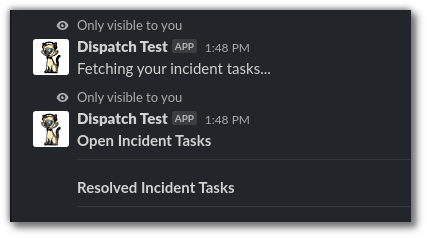
/dispatch-list-tasks
Use /dispatch-list-tasks to display a temporary message listing all tasks associated with the incident.
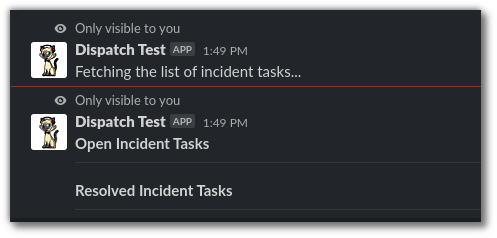
Incident resources and metadata
These commands help manage incident resources and metadata (data about the incident).
/dispatch-update-incident
This command allows the IC to modify several aspects of the incident without ever leaving the conversation interface.
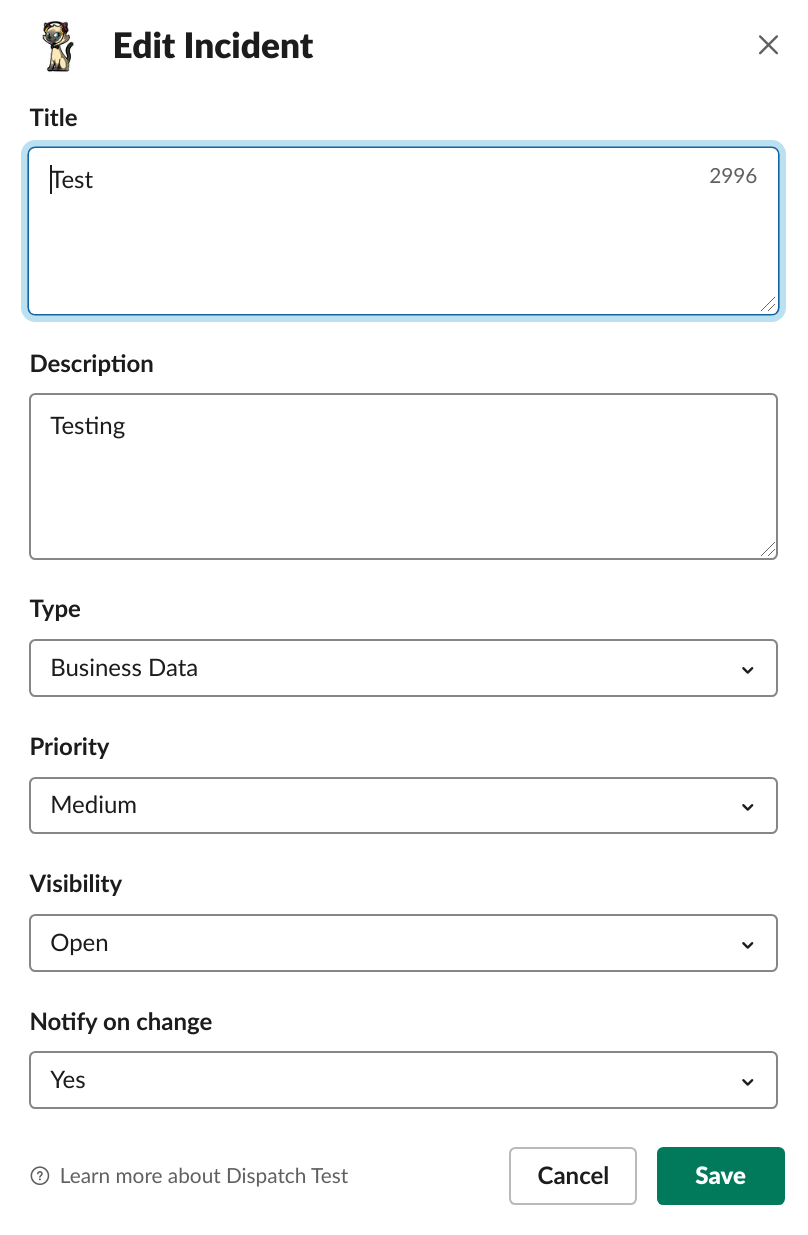
/dispatch-add-timeline-event
This command helps you add an event to the incident timeline. You may use local time (derived from your Slack profile) or Coordinated Universal Time (UTC).
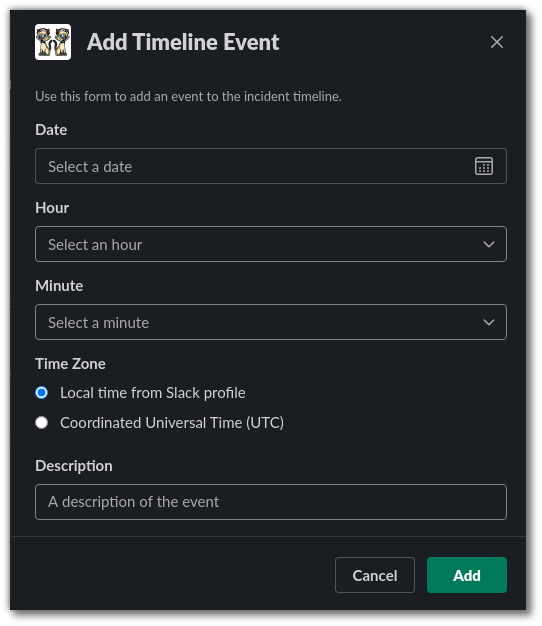
/dispatch-list-workflows
This command will list all workflows associated with the current incident.

/dispatch-run-workflow
This command will run a pre-configured workflow and associate its artifacts with the current incident.
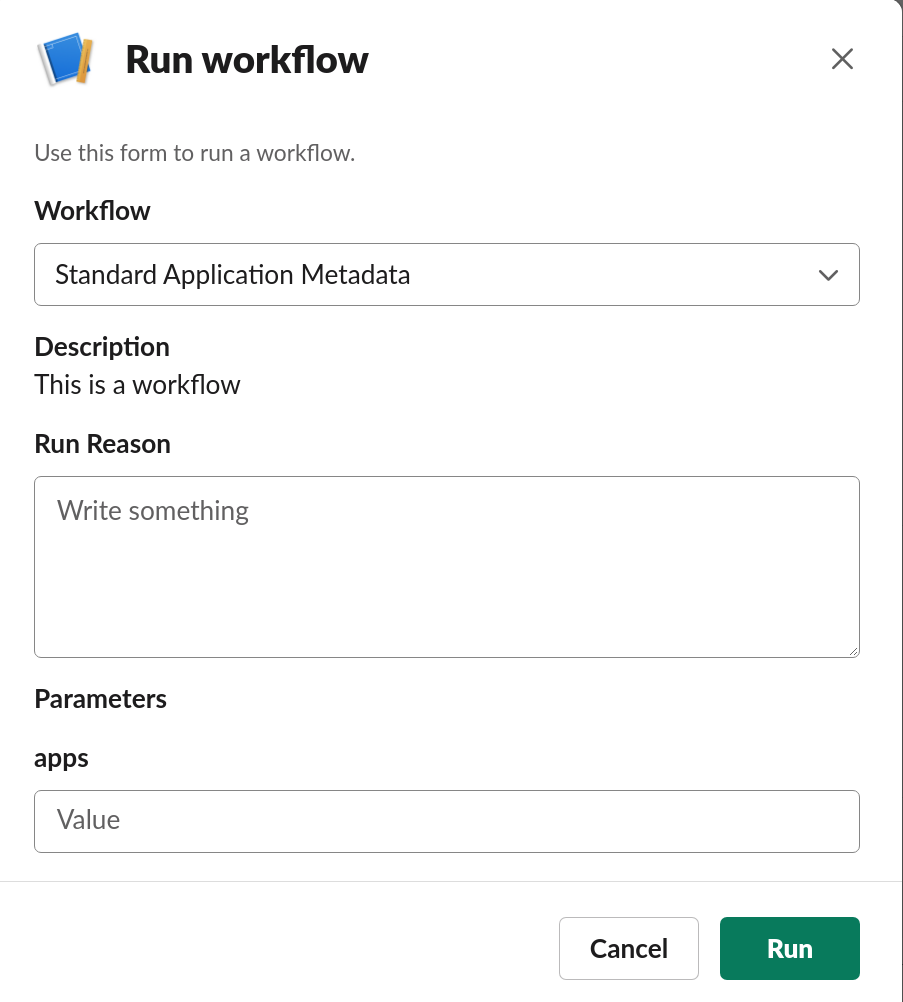
/dispatch-create-task
This command will create a task for the current incident.
{/ TODO(averyl): replace this image /}
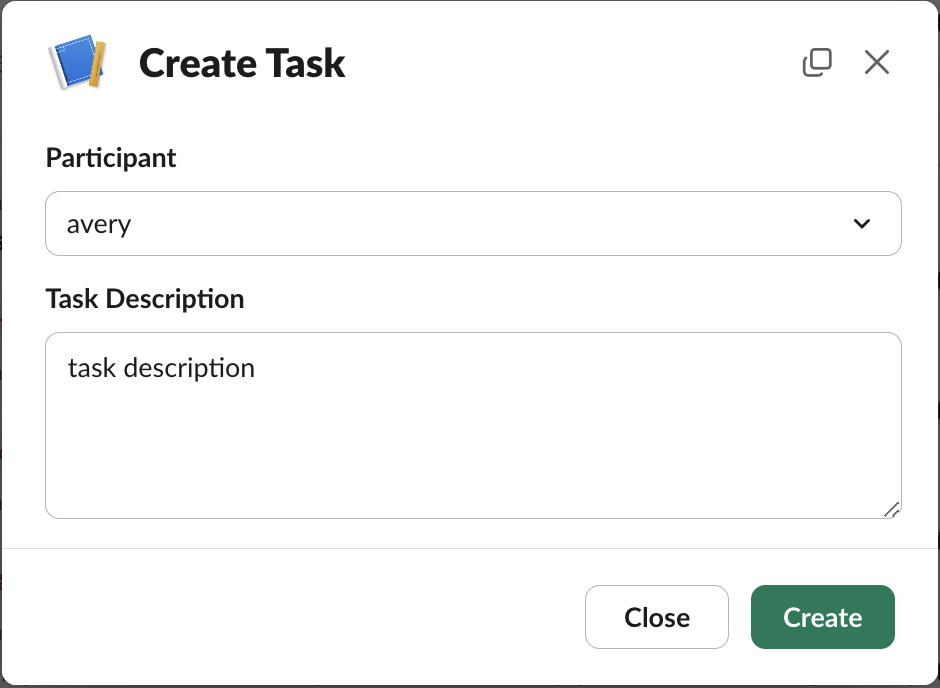
/dispatch-create-case
This command will create a case for the current incident.